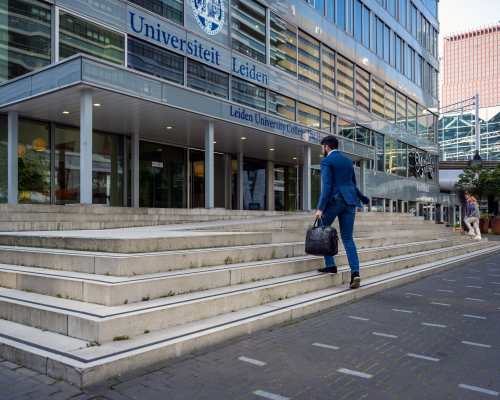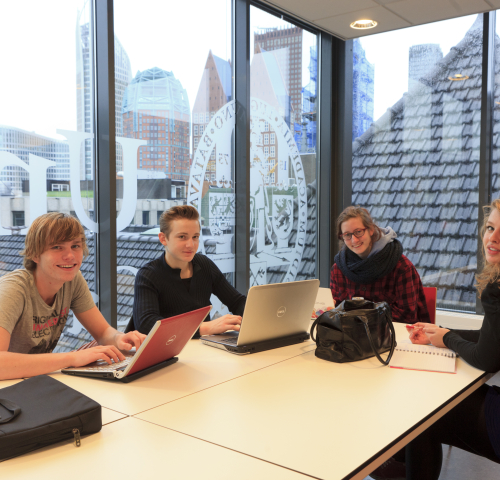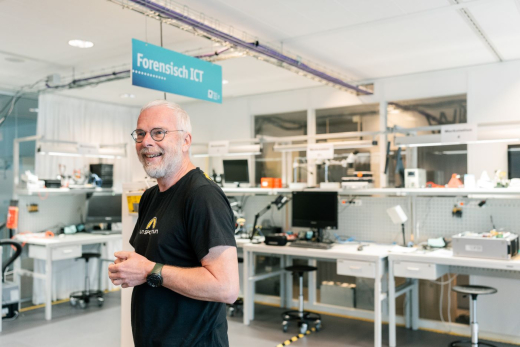The programme combines four disciplines: public administration, computer science, criminology, and law. In addition to traditional lectures, innovative teaching methods such as simulations, serious games, moot courts, and hackathons will be employed. The goal? To optimally prepare students for the challenges in the dynamic and growing field of cybersecurity and cybercrime.
Professor Bibi van den Berg, Chair of Cybersecurity Governance at Leiden University, is leading the development of this programme. She underscores the programme's unique focus on pressing cyber issues such as ransomware and responsible disclosure.
“In the coming years, many cybersecurity and cybercrime specialists will be needed to make and keep the Netherlands safe. There is a high demand from the market for specialists in cybersecurity and cybercrime, and this programme offers students in-depth knowledge and skills to contribute to that mission.”
The cybersecurity and cybercrime programme
The new programme is designed to align with the growing need for cyber experts. With cyber incidents becoming a question of 'when' rather than 'if,' the course will not only focus on prevention and management but also on learning from past incidents. To keep the curriculum relevant, lecturers who are actively researching cybersecurity and cybercrime will update the material regularly.
"Courses on specific themes, such as ransomware, will address the latest challenges. If these issues become less relevant, the curriculum will be revised accordingly,"
About the Program
Leiden University’s new Bachelor’s programme in Cybersecurity & Cybercrime represents a significant advancement in addressing the urgent need for cybersecurity professionals and enhancing the educational landscape of cybersecurity.
Over three years, students will learn about everything related to cybercrime and cybersecurity. The first year focuses on cybersecurity in organisations, law in cyberspace, and criminology. Students will also be introduced to the four different disciplines and will develop academic and professional skills such as doing research and critical thinking. In the second year, the focus shifts to incidents, attacks, and crises. Topics include cyberattacks, perpetrators and victims, crisis management, and criminal law. Analysing cyber incidents and providing policy advice are also part of the curriculum. In the third year, students will delve deeper and undertake a final project investigating a cyber challenge. This involves writing a scientific article and giving a poster presentation at a symposium. The programme will be taught primarily in Dutch, with some courses offered in English. The university has already informed secondary school deans and VWO students about this new opportunity. To further strengthen its expertise in cybersecurity, Leiden University is also seeking to recruit three university lecturers with specialisms in cybersecurity and governance.
The Hague, the International City of Peace and Justice
Located on Leiden University’s campus in The Hague, the programme benefits from its proximity to a range of national and international security organisations, including ministries, Europol, the NATO Communications and Information Agency (NATO-NCI), the Global Forum for Cyber Expertise (GFCE), InnovationQuarter and Security Delta (HSD). This strategic location provides students with valuable connections and insights from a vibrant network of professionals in the field. During Cybersecurityweek.nl and ONE Conference the city brings together all cybersecurity professionals from all around the world.
"The launch of this Bachelor’s programme not only enhances our city's reputation as a leading hub for cybersecurity but also aligns perfectly with our ongoing efforts to foster innovation and expertise in this crucial area. The proximity to major international and national organisations will offer students unparalleled opportunities for practical experience and professional growth."
IoT Lab at HSD Campus
Another member of the Cybersecurity cluster in The Hague is the IoT Forensic Lab of Leiden University of Applied Sciences, located at the HSD Campus in The Hague. This facility, already in use, plays a crucial role in cybersecurity education and research. The IoT Lab is designed to provide students and researchers with hands-on experience in the Internet of Things (IoT) and its security challenges. By simulating various IoT environments and security threats, the lab helps bridge the gap between theoretical knowledge and practical application. This experience is invaluable for students who will be facing the evolving landscape of cyber threats in their professional careers.
Visit the Open Day of Leiden University Campus The Hague
Join the Bachelor's Open Day in Leiden and The Hague on Saturday 12 October 2024.
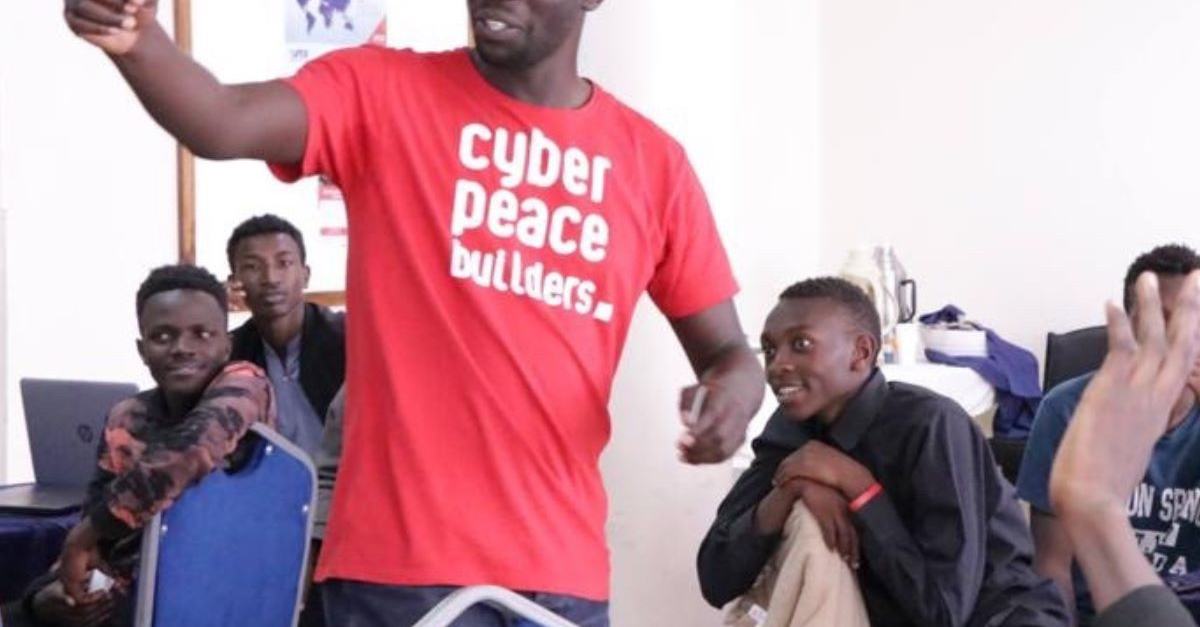
How to prevent 200+ NGOs in The Hague from shutting down after a cyberattack
How an NGO in The Hague is ensuring the cybersecurity of 200+ NGOs in the City of Peace, Justice and Security.
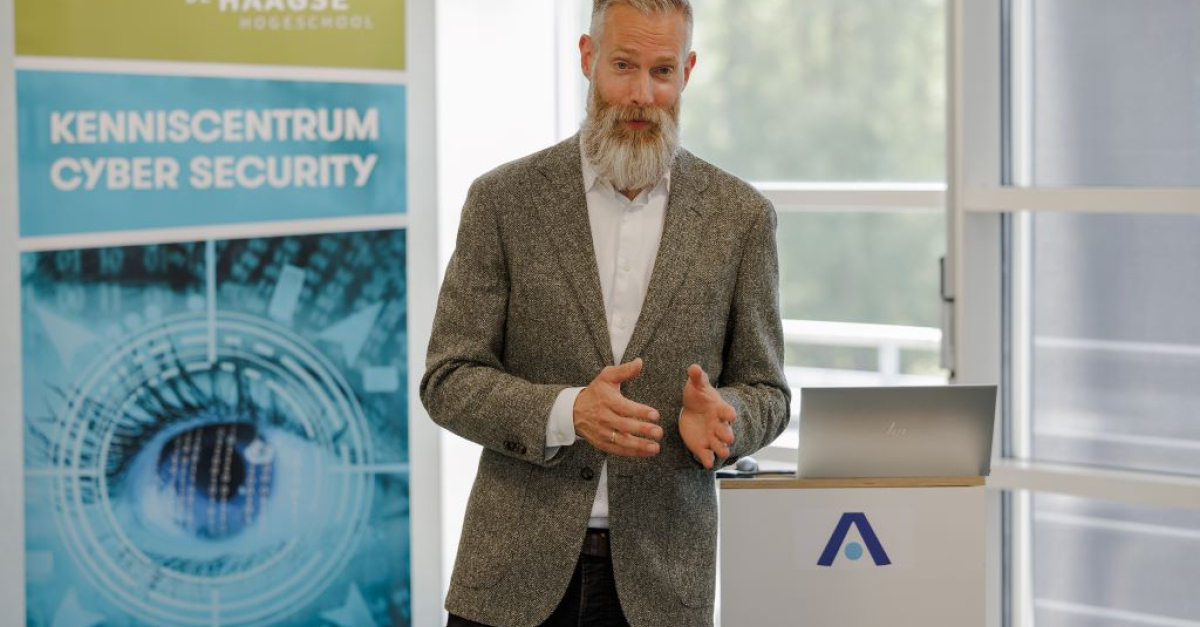
Research in The Hague: How to prevent curious youngsters from becoming cybercriminals?
Official start of 5-year research program pathways into cybercrime by Rutger Leukfeldt of The Hague University of Applied Sciences ...

Prodaft, the Cyber Security Ecosystem, and the Importance of Intertwining
As with any industry facing rapid progress, the continuous development of the technological sector comes with its very ...
Learn more about the Cybersecurity courses offered by the Technical University Delft
Like the current course: Economics of Cybersecurity, Foundation and Measurement: Learn why cybersecurity failures occur and recur in organisation and how to remediate them. Identify the economic investments that produce security successes. Develop a practical framework for measuring security and its driving factors.
